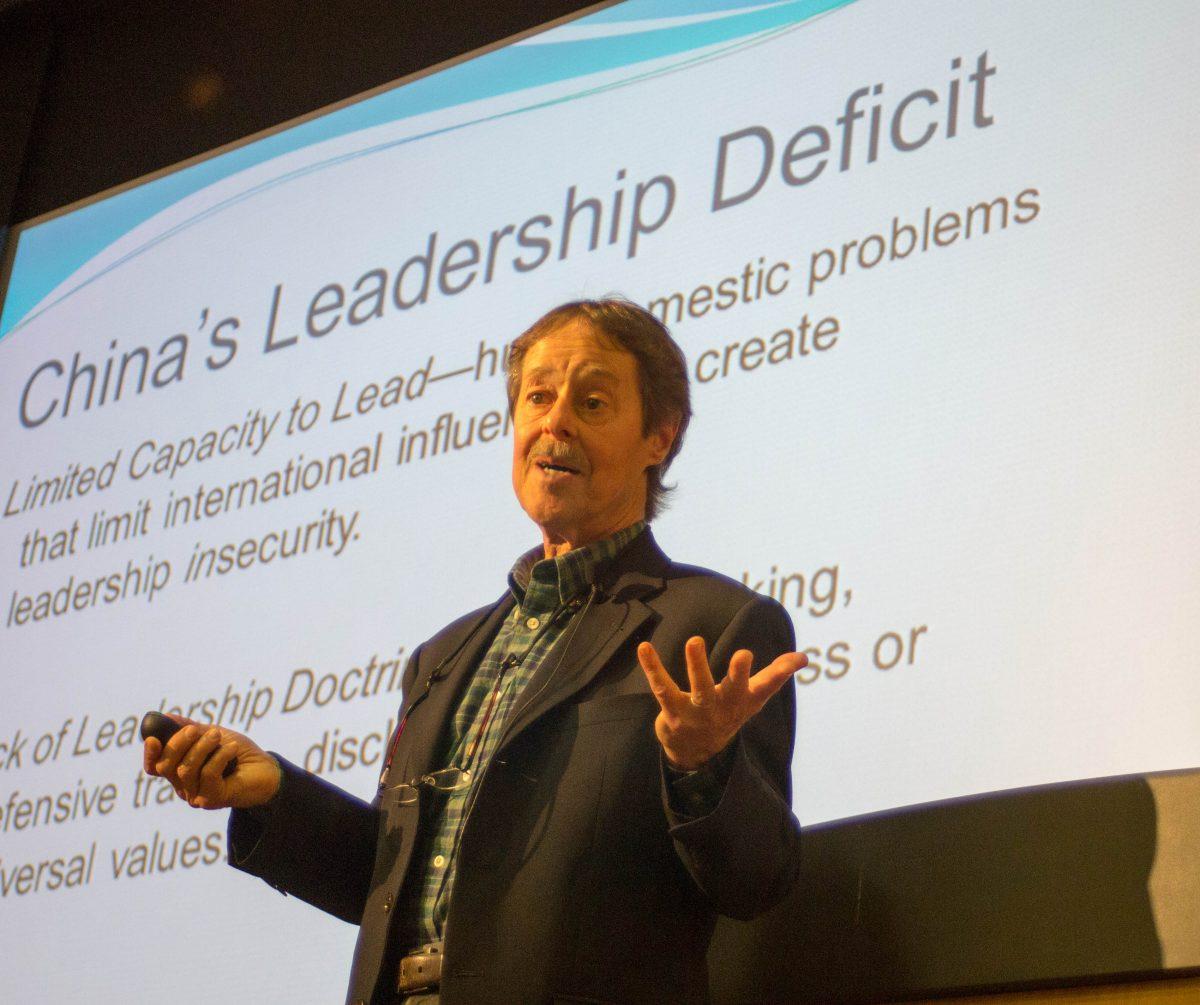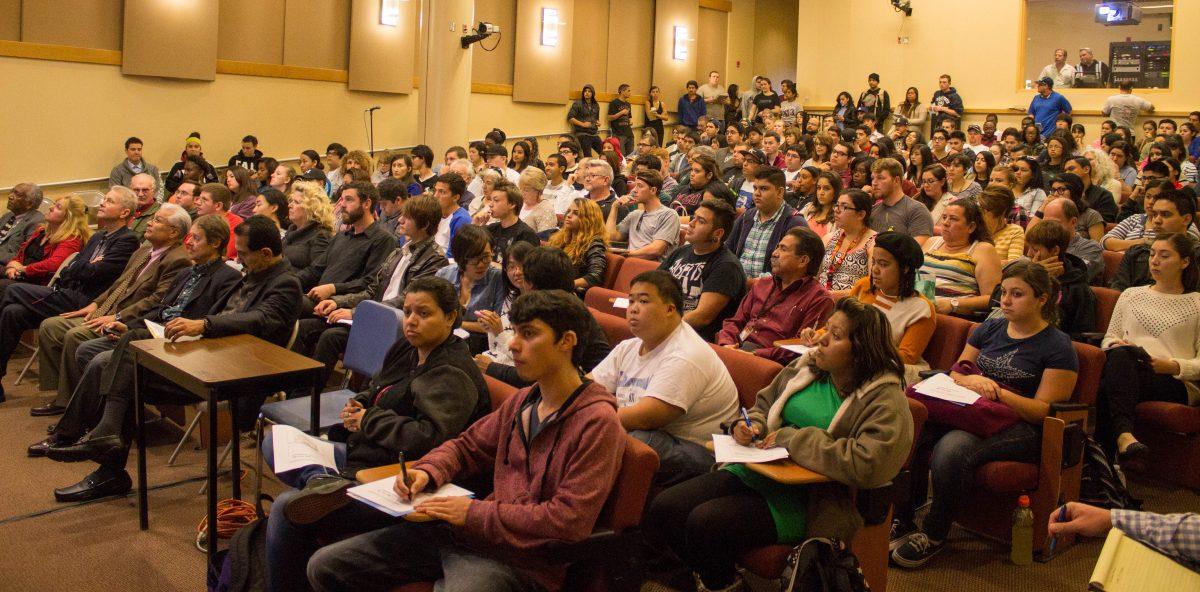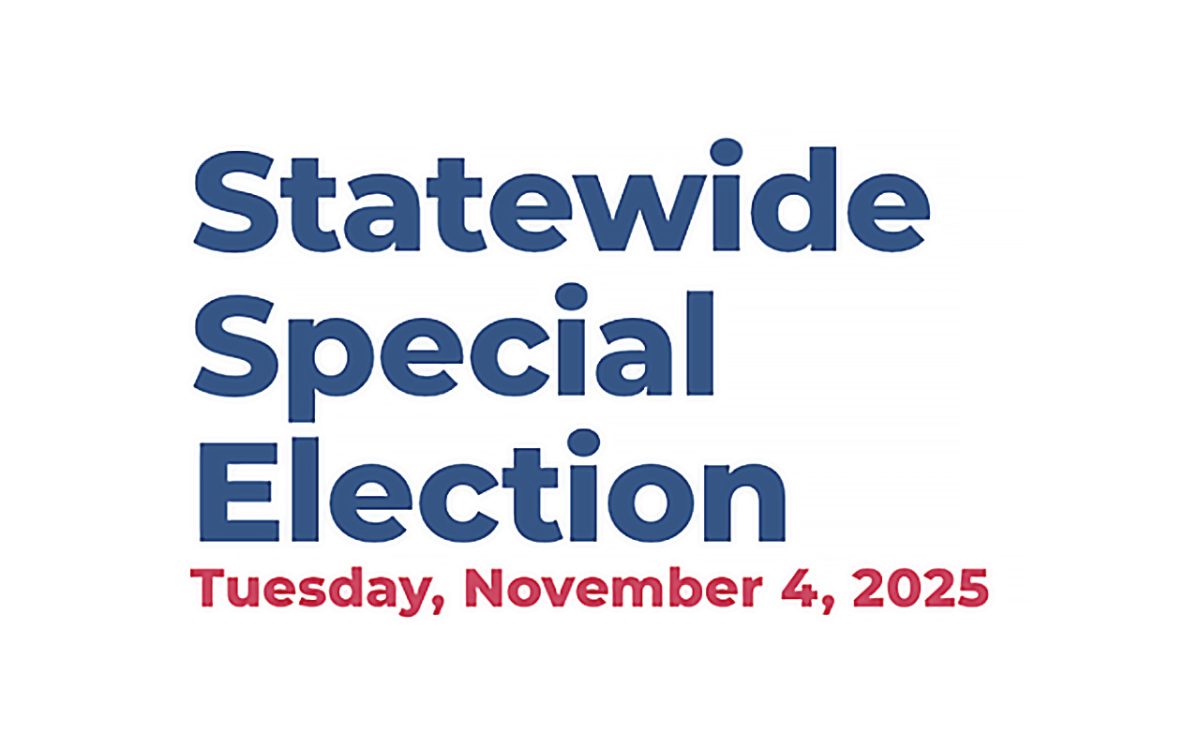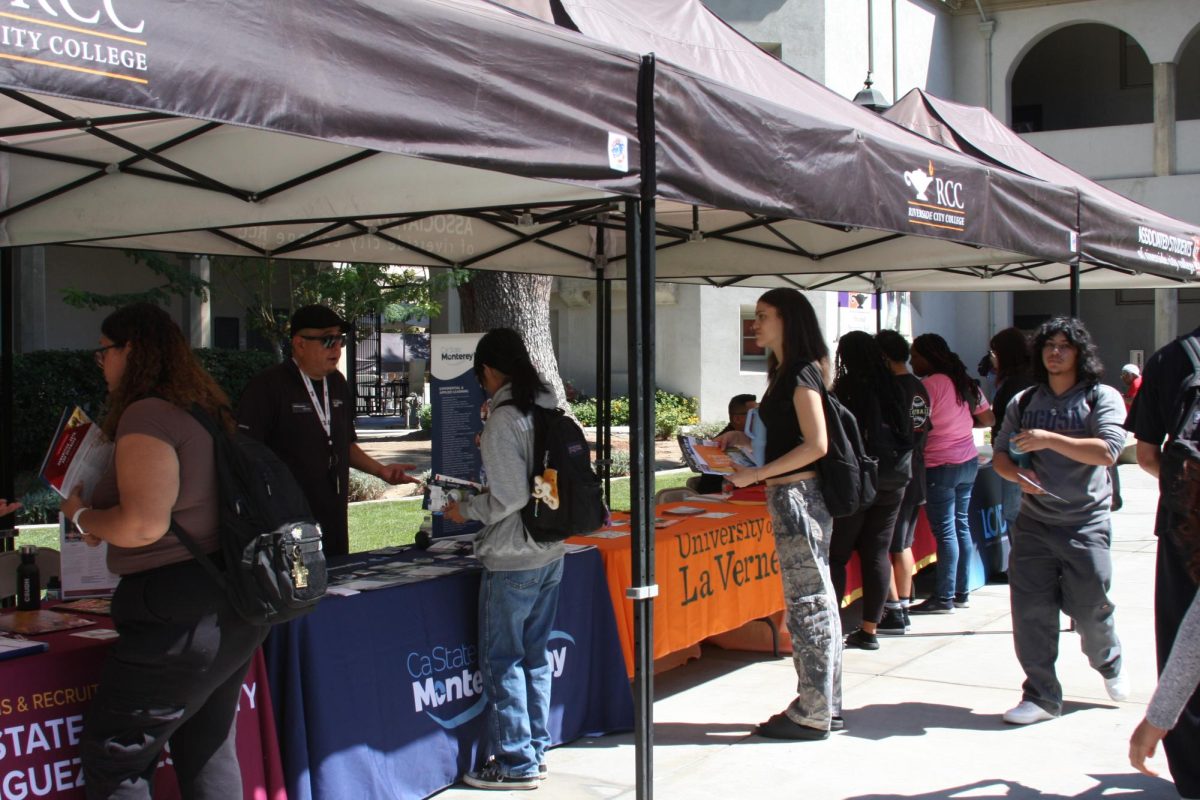Author of “The Pentagon Paper,” and former RAND employee speaks to full house on the rise, or not, of China.
JOSA LAMONT | STAFF EDITOR
Mel Gurtov gave a lecture on the threat level of China’s current foothold in global politics.
On Oct. 24 at 3 p.m. he presented to a crowd of students and faculty who resorted to standing to see his lecture when seats ran out five minutes before the lecture was scheduled to
begin.
Folding chairs were brought in to accommodate overflow and spanned the aisles, but people still stood in the back of the Digital Library Auditorium.
Some students of political science classes were given extra credit from their teachers, but many attended just to see Gurtov speak.
“I don’t even know what this is about,” said Laura Zamora. Others attending were more enthusiastic.
Several teachers from Riverside City College reminisced on when they studied under Gurtov at UC Riverside in the 1980s or as early as 1971.
The Lecture was dedicated to vice chancellor provost Ray Maghroori who will retire in March.
When Maghroori was getting his doctorate degree he selected Gurtov to be his dissertation committee chair when he received his doctorate.
“I found him to be the most helpful, the most knowledgeable faculty member that I could work with,” said Maghroori.
Dariush Haghighat also asked Gurtov to be his dissertation chair, and Gurtov has made many other friends on campus through those relations.
Gurtov is an author and coauthor of 25 books, including one he wrote with Maghroori, one he wrote with Haghighat, and the pentagon papers.
Gurtov also contributed to research in the RAND Corporation, where he worked earlier in his career.
Before the lecture, fortune cookies and printed Powerpoints were handed out to people attending and 300 were given away.
In his lecture, Gurtov discussed that China poses no threat to the United States currently, but if China is a threat it is an internal problem, as China will pose a threat to itself.
The reasons Gurtov gave for China’s inability to enter the world stage as a super power are a lack of leadership as a nation, an insubstantial military and a lack of social value structure or identity.
According to Gurtov, China’s leadership style is that of an internal and introverted nature, causing China to respond defensively and passively as a leader.
The nation’s sense of responsibility or guilt causes introspection that culturally keeps china’s aggression levels and sense of a right to lead cushioned.
The largest threat to China is its own inability to balance its social issues.
They lack freedom of speech, general health or well-being, they have an overabundance of elderly people and they struggle with environmental issues that are unrivaled.
China also urges its rural farmers to move into urban areas, and it struggles to maintain a balance internally with its tendency toward growth, and its inadequate principals of value.
The lecture ended with an invitation for questions from the audience and several students, some from China, came forward and were able to direct questions to Gurtov.
Schall also handed Gurtov a framed commemorative print of the ticket and flier for the event to show the appreciation of such a prestigious lecture.
“We invited our students and we were so very very pleased that not only that the room was full but that we had to bring in extra chairs for students,” said Janice Schall, retired teacher and study abroad program director.
“I just have great respect for students for coming to this and for asking questions.”
The lecture took about a month to promote with Model United Nations delegates going to classes making announcements as well as faculty forwarding emails consistently.
Model United Nations helped sponsor the event in coordination with the political science department, Schall and Haghighat.
The Study Abroad program brought lemon bars, brownies, cake and drinks for the reception where students were invited to further discus the topic of the lecture with Gurtov and
other faculty.








